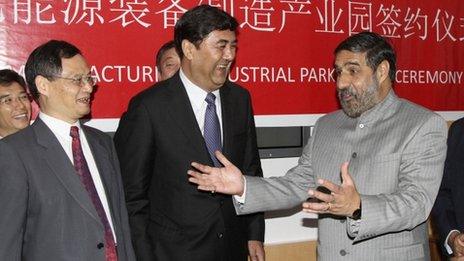Coca-Cola Crimea map move sparks Ukraine boycott calls
- Published
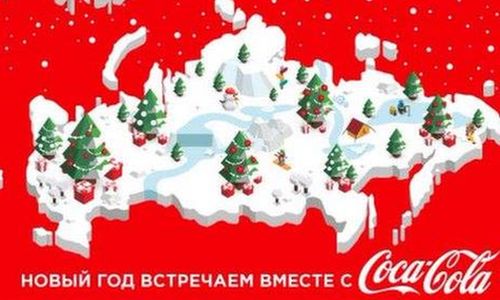
Coca-Cola republished the map to include Crimea following complaints from Russians
Ukrainian social media users have called for a boycott of Coca-Cola after it posted a festive map of Russia that included Crimea.
The company originally posted a map that excluded the annexed peninsula, but backtracked when it received protest from Russians.
It quickly republished the photo to include Crimea, only for Ukrainians to threaten to boycott the company.
Coca-Cola has now removed the image altogether and apologised.
In a statement released on Wednesday, the US drinks manufacturer said it did not "support any political movements", adding: "The company has removed the post and apologises for the situation that occurred."
The US embassy in Ukraine had earlier condemned the inclusion of Crimea, saying in an online statement, external: "Coca-Cola's actions violate the official US position condemning Russia's illegal occupation of Crimea, which is and has always been an integral part of Ukraine."
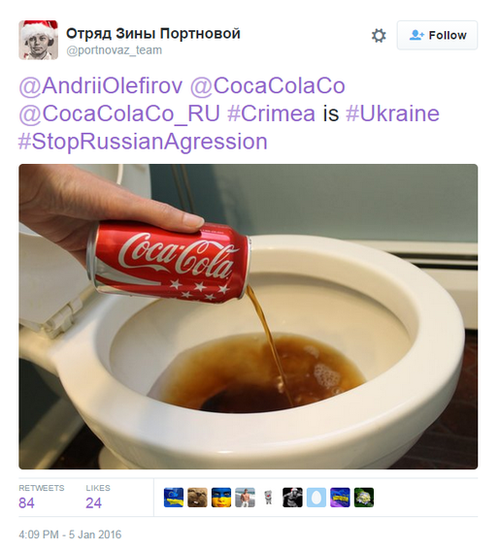
Many Ukrainians called for a boycott of the company
Coca-Cola posted the original message on VK, Russia's biggest social network, on 30 December, with the caption: "Celebrate winter holidays from Moscow to Vladivostok."
Following condemnation from Russians, it republished the image to include Crimea and went further, including the Kuril Islands - seized by Russia shortly before Japan's surrender in World War Two in 1945 - and Kaliningrad, a Russian exclave annexed from Germany in the same year.

Map blunders
In 2011, a Chinese firm came under fire, external for drawing up a map that showed disputed parts of India within China's border. China's ambassador said it would not help India-China relations, although he was told it was a "technical issue".
In 2012, Google Maps faced legal action from Iran for failing to name the body of water Iranians call the Persian Gulf, and which Arabs refer to as the Arabian Gulf. The company said it did not want to take a political stance.
The UK government issued an apology in June 2014 when it shared a map on Twitter including the Isle of Man - which is self-governing and not part of the UK or the European Union - with the caption "By staying united we have much more to gain".
The Romanian foreign ministry apologised in March 2015 when it gave a German diplomat a booklet showing a map of France with the German flag covering it. It said it was a "regrettable technical error".

Ukrainians were quick to respond on social media, with many using the hashtag "#BanColaCola".
Ukrainian MP Mustafa Nayem backed the boycott, saying: "All countries which are the main market of Coca Cola like the European Union, the United States, they actually (are) recognising Crimea as a part of Ukraine and they've put sanctions against Russia.
"I think that a company like Coca Cola, which is an international company, should follow these rules and they should follow this way and recognise the same."
Oleh Lyashko, a populist Ukrainian politician, vowed that he would "never ever in (his) life drink Coca-Cola again". He also posted an edited image, external of the Coca-Cola poster, with the words "Betrayal" replacing the brand's name.
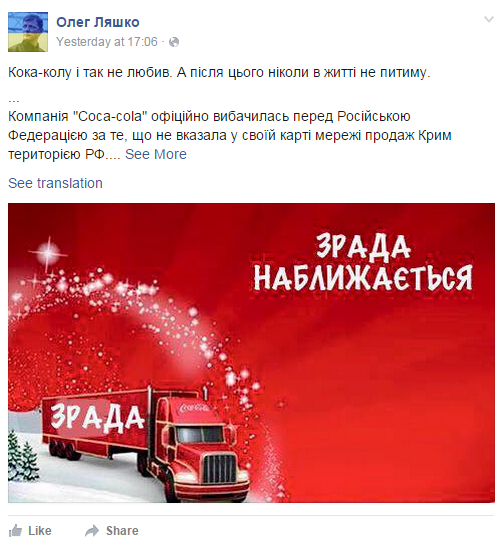
Mr Lyashko edited Coca-Cola's poster to read "Betrayal is coming"
Some - like Facebook user Volodymyr Petrenko - accused Coca-Cola of being "fascists", external.
Crimea was taken over by Russia in 2014 following months of protests that led to the downfall of Ukraine's pro-Moscow President Viktor Yanukovych. The majority of Crimea's 2.3 million population identify as Russians and speak Russian.
The EU and US condemned the annexation of Crimea and announced travel bans and asset freezes against a number of Russian and Ukrainian officials.
- Published31 July 2023
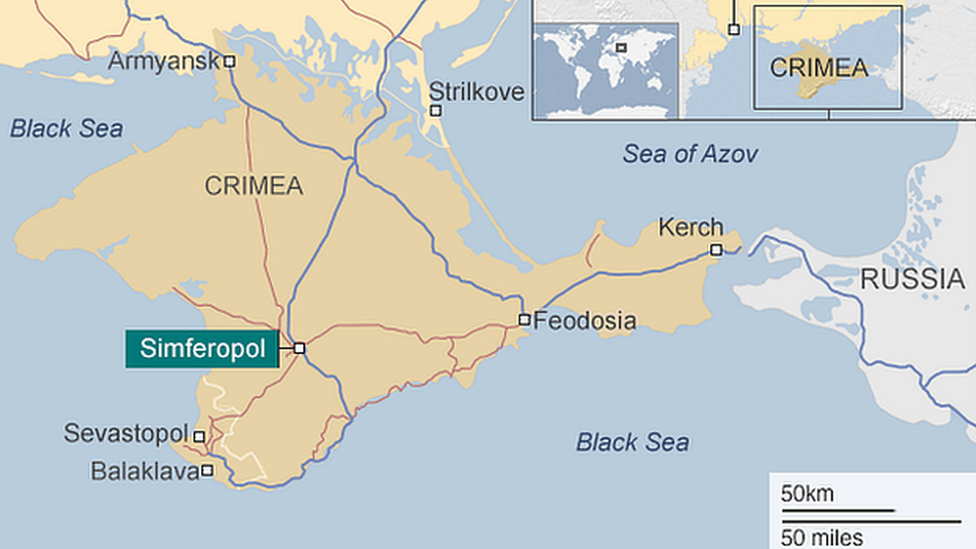
- Published10 March 2015
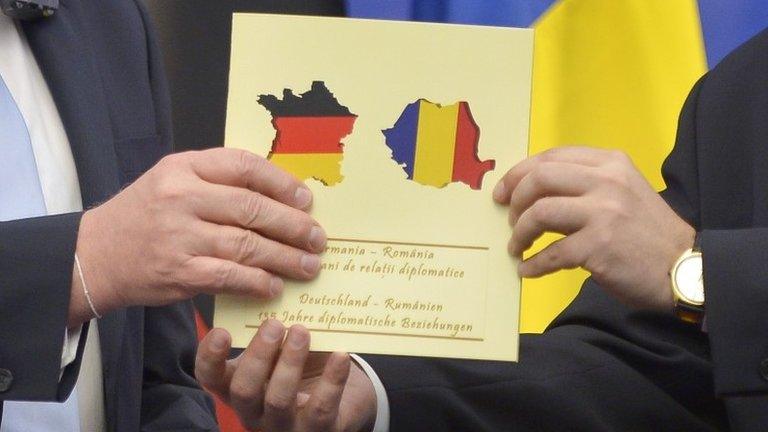
- Published25 June 2014
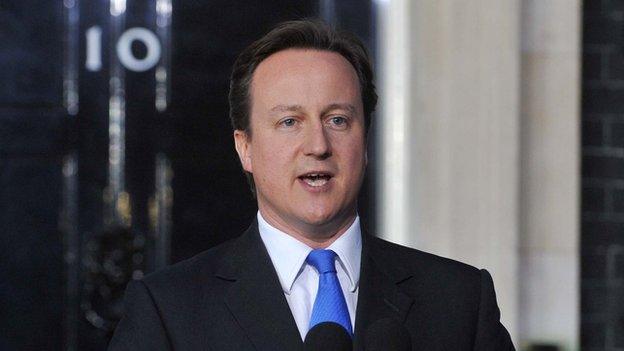
- Published17 May 2012
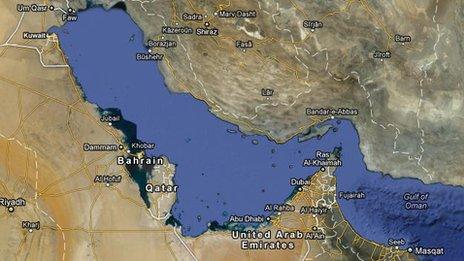
- Published4 November 2011
